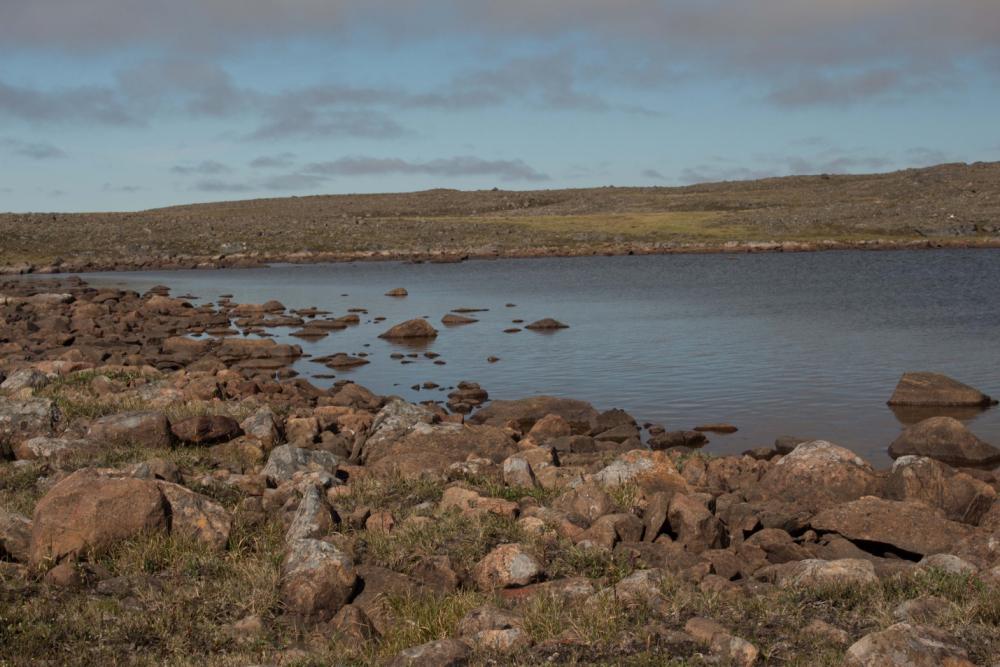Water sources and change for the Apex River, Iqaluit: We started this research project studying the Apex River in 2013 to determine how the river has changed during the past 40 years and how it is sensitive to future change. This research was started because of the interest of the City of Iqaluit and other local groups, and we have begun a research program that we hope can be sustained for a long period and meet the needs of residents and organizations in Iqaluit, while building local experience and expanding capacity for water research.
In November 2012, May 2013, August 2013 and February 2014 we met with researchers at the Nunavut Research Institute and AANDC, as well as representatives from the City of Iqaluit. We also were interviewed for CBC North radio in May 2013 and television in August 2013 and May 2014 to describe our research plans and early results. We carried out field research in collaboration with the Nunavut Research Institute during the period of May-August 2014.
We sampled snow, river, and lake water in the Apex River watershed for analysis of water quality and to determine the different sources of the water. This sampling was carried out in collaboration with researchers at NRI from May until freeze-up in November. For the second year, we sampled 20 lakes for water quality and to determine how much evaporation had occurred over the summer. We are currently analysing the data, but have found that different parts of the watershed are more sensitive to evaporation than others, and this will affect the sources of water during dry years, especially in late summer and autumn.
In 2015, we plan to continue to sample the snow, river and lakes in a similar manner, starting in April and continuing until freeze up in the autumn. The sampling involves driving or walking to sites in the watershed, and returning the samples to NRI for processing. We will work to coordinate this sampling with other NRI sampling programs, and seek opportunities to collaborate with other groups interested in the river including researchers from Carleton University, Environment Canada and the Canada-Nunavut Geoscience Office. We will install electronic data recorders to measure water depth at several locations in the river and lakes and remove these at the end of the summer. These recorders do not use any hazardous material and will not be visible to residents on the land. We will also carry out research involved mapping the vegetation in the watershed using satellite images. We will install several stations that record sunlight to compare with plant growth, and remove the stations at the end of the summer. Work in 2015 will focus on determining if plants are growing more now than they were in the past. We plan to use the vegetation mapping for modelling the river in the future, and for understanding how the vegetation is changing.
As part of our visits to Iqaluit, we intend to meet with community members, government and community groups to discuss our research and share results. We will also talk to the media so information about our research is available to more residents, hopefully through TV, radio and newspaper interviews.
Project contacts:
Scott Lamoureux, Scott.lamoureux@queensu.ca, Phone: 613-533-6033
Jamal Shirley, Jamal.Shirley@arcticcollege.ca, 867-979-7290
Summery Documents
2014 Annual Report - Apex River Project (Inuktitut)
2014 Annual Report - Apex River Project (English)
Nunavut Research Institute Application - Project Summery of Activities 2013 - Apex River Project (Inuktitut)
Nunavut Research Institute Application - Project Summery of Activities 2013 - Apex River Project (English)
